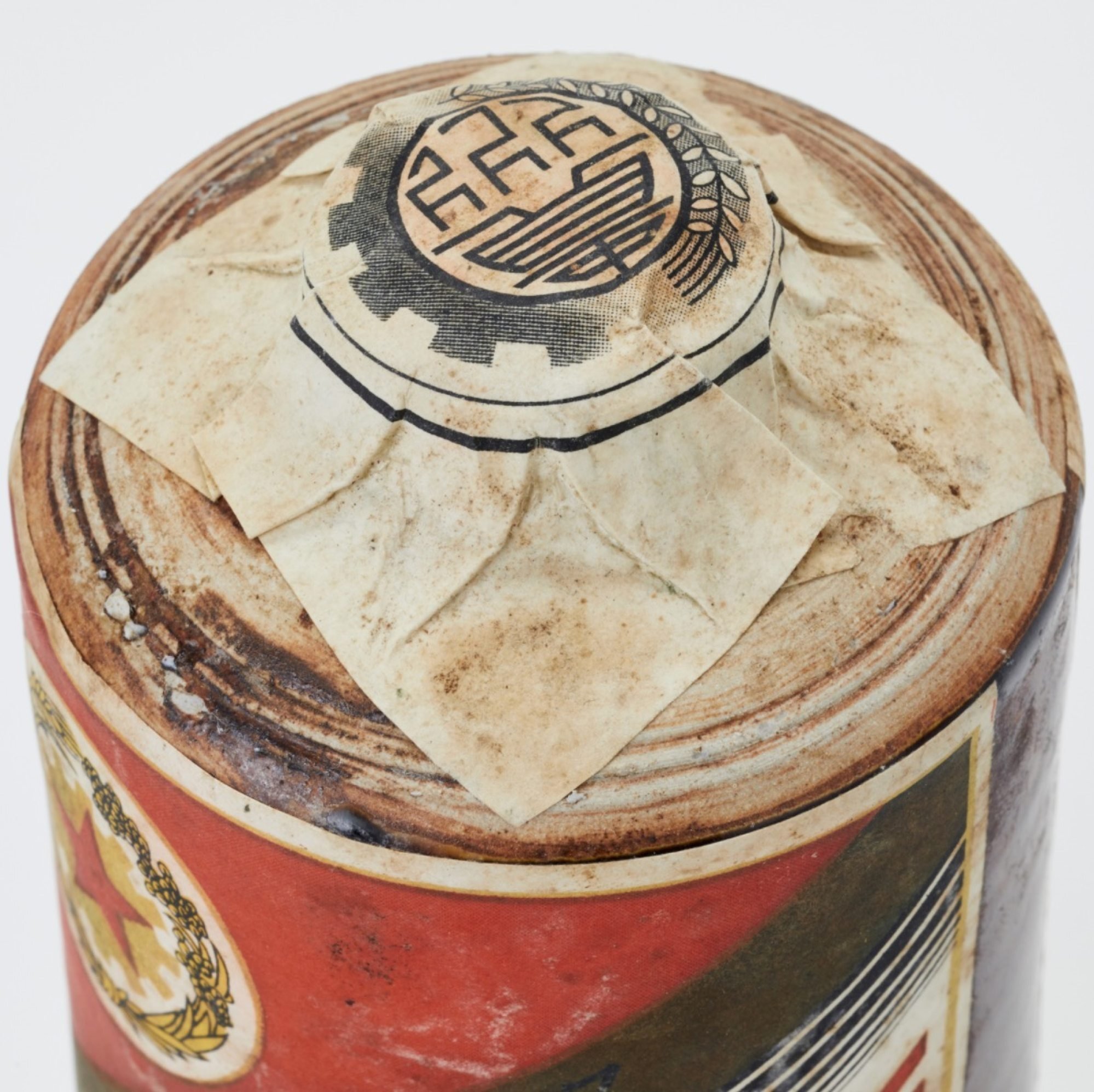
US$250,000 for a bottle of baijiu? A 1959 bottle of Mao-tai could fetch that much at Christie’s auction
- The bottle is both exceptionally rare and has been kept in remarkable condition over the past decades
- The auction features dozens of lots of Mao-tai that are expected to fetch over US$10,000 per lot
It certainly would be a tough sell for most people to spend hundreds of thousands of dollars on a bottle of liquor, but that is the value of a 1959 bottle of baijiu currently on auction at Christie’s.
The bottle, which is part of an online auction with 100 lots closing on January 13, is valued as being worth between US$125,000 and US$250,000.
“1959 bottles are exceptionally rare. A Mao-tai of this age is very hard to come by, and there are many counterfeits out there. In addition to being authentic, this particular bottle is in pristine condition and weighs 887g, meaning over the years it has only lost less than 10 per cent of the spirits to angel’s share, thus meaning the bottle was kept in superb condition,” said Fiona Hui, an Asia Pacific specialist in Christie’s wine department.
This batch of bottles was owned by one person, who is a prominent Chinese collector.

Besides the 1959 bottle, there are dozens of other items for sale that are fetching bids worth tens of thousands of dollars. Hui said the reason Mao-tai is worth so much money is because it is “rich in historical, cultural and economical value”.
The drink is considered China’s “national drink”, and the spirit is given to foreign heads of states as a show of honour.
China has long hoped baijiu could become the “national tequila” and turn into a liquor that transcends borders, much like Japanese sake. However, despite its relatively provincial status as a Chinese drink, baijiu manufacturer Kweichow Moutai became the world’s largest liquor maker in 2020.
Similar to champagne, Mao-tai is named after the place it is from; it comes from a very specific part of China, a town named Maotai in the southern province of Guizhou. Furthermore, Mao-tai only refers to the baijiu made by the manufacturer Kweichow Moutai; all other brands of the liquor made in Maotai are called Maotai Town baijiu.
Two types of Kweichow Moutai are on sale in this auction, Wuxing and Feitian. The alcohol used in Wuxing and Feitian Mao-tai are the same, but the packaging differs and Wuxing is traditionally meant for the domestic market.
Culturally, Mao-tai is a status symbol, facilitated in part by a supply and demand crunch because people are only allowed to buy two bottles per person from retailers. This has created a vibrant secondary market.
“Due to the pandemic, buyers cannot travel that much and money is diverted to domestic luxury,” said Hui.

While Mao-tai was famously beloved by the late Chairman Mao Zedong, its biggest proponent might have been his premier Zhou Enlai.
“He recognised the quality and potential of Mao-tai, and implemented policies to protect the river and terroir. He also helped a lot on promoting the spirit, including using it to entertain Richard Nixon in his presidential visit to China in 1972,” said Hui.
Legend has it that dozens of communist soldiers used the fiery drink to clean their wounds during the Long March between 1934 and 1935.
There are three lots on sale called “In Memory of Great Man’s 120th Anniversary of Birth Package Mao-tai” that commemorate what would have been the 120th birthday of Chairman Mao. They are valued as high as US$14,000 per lot, which contain three bottles each.
In 2018, a 1958 bottle of Mao-tai was sold for 600,000 yuan by Christie’s.

